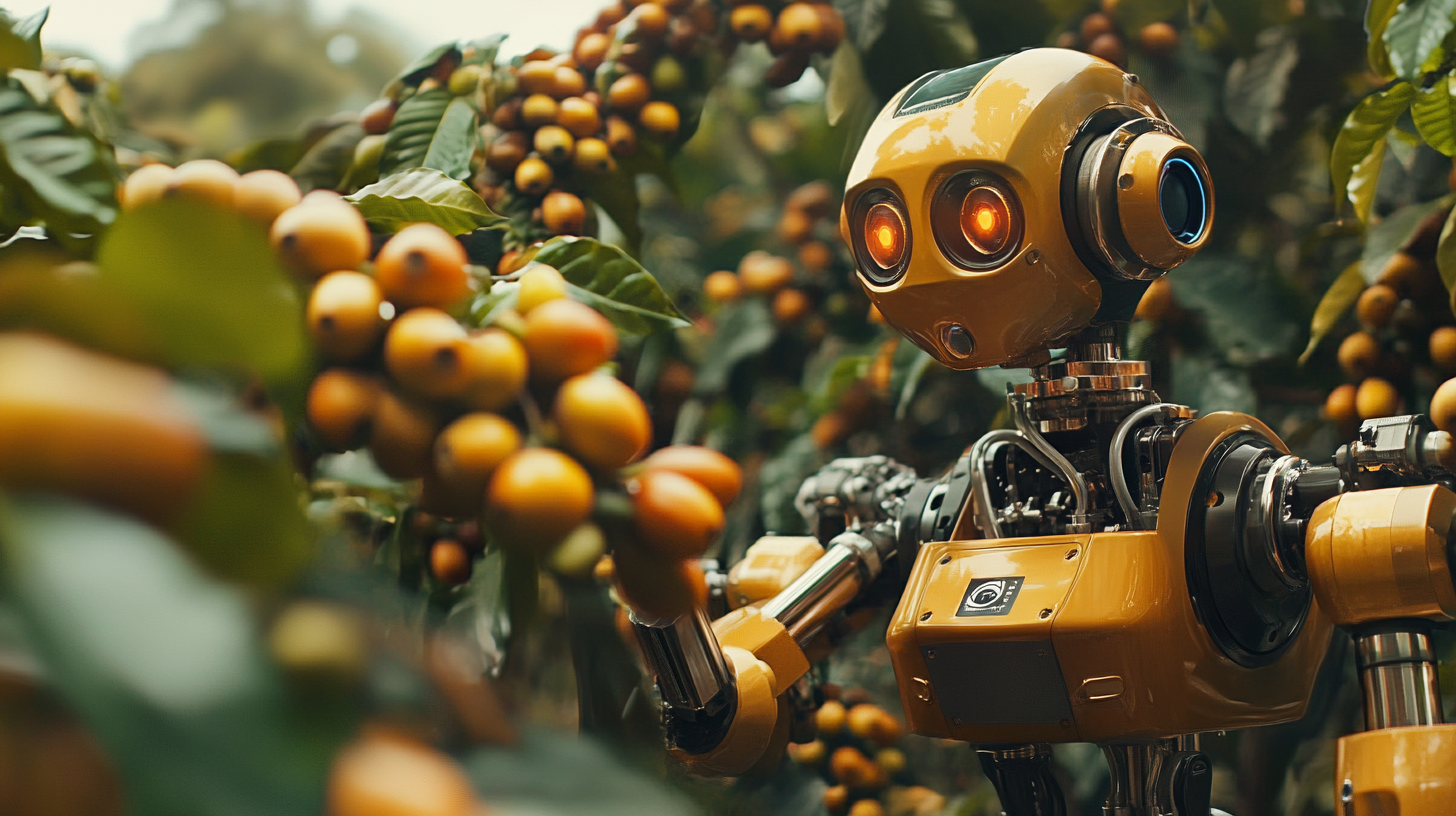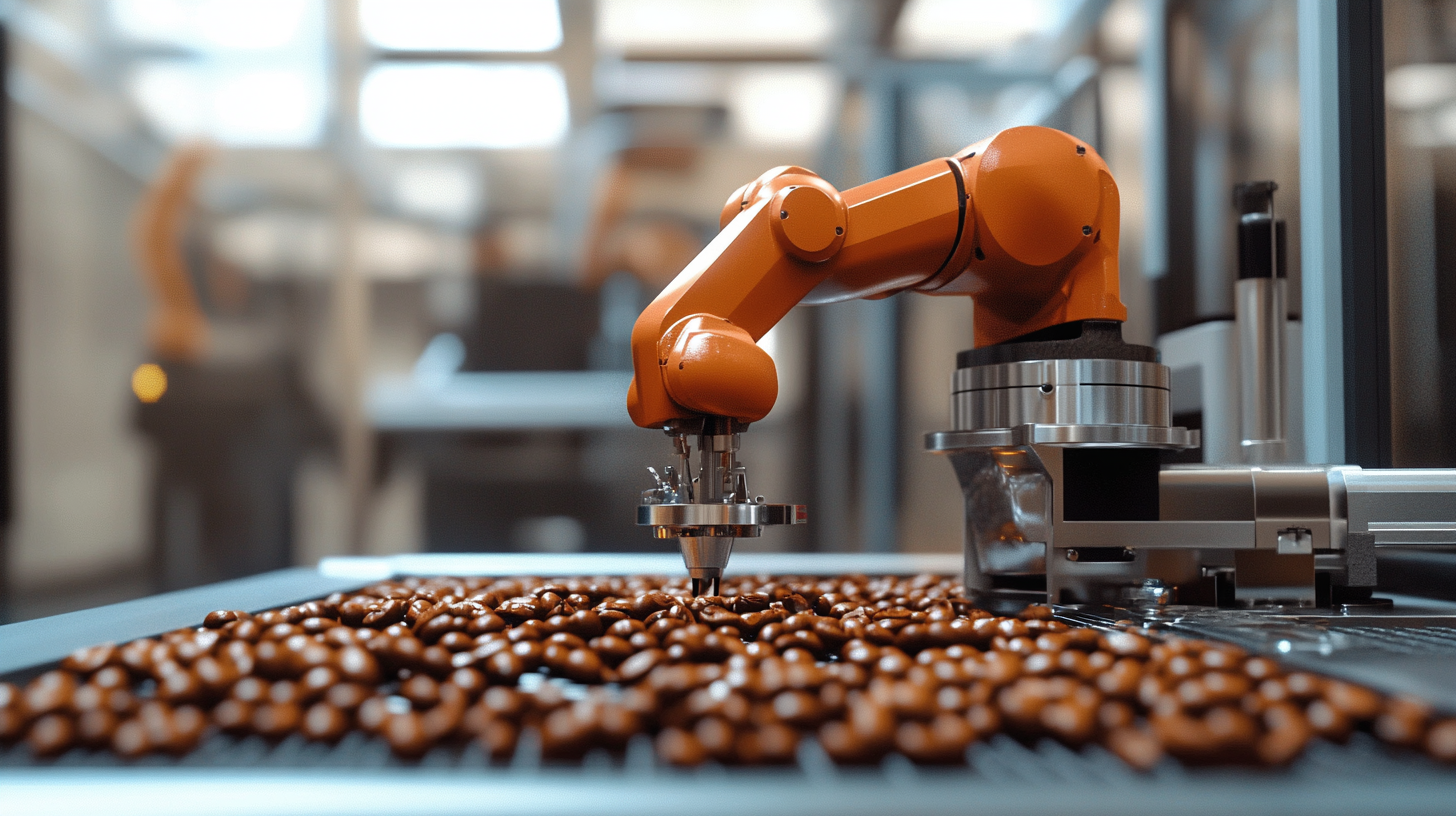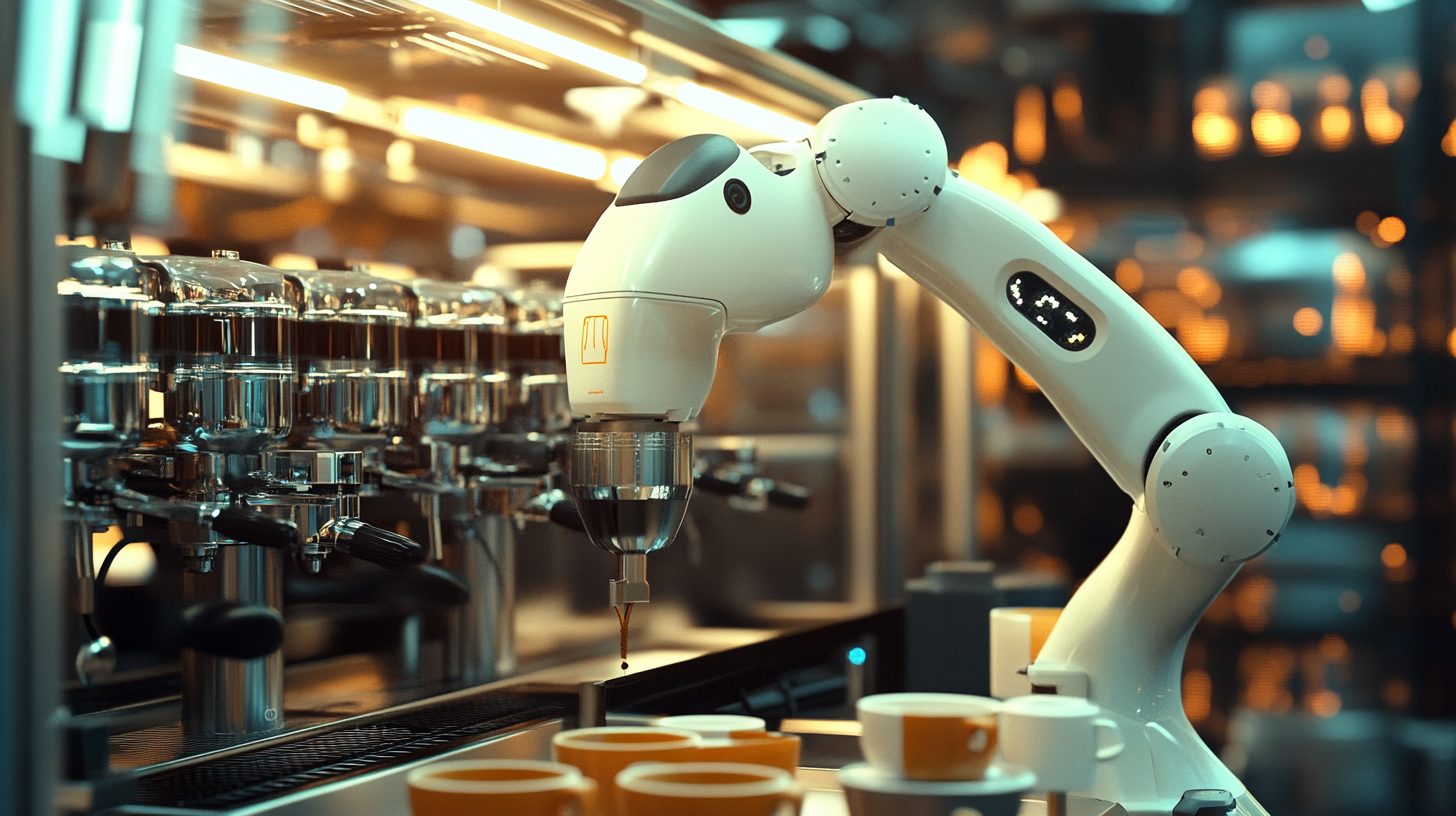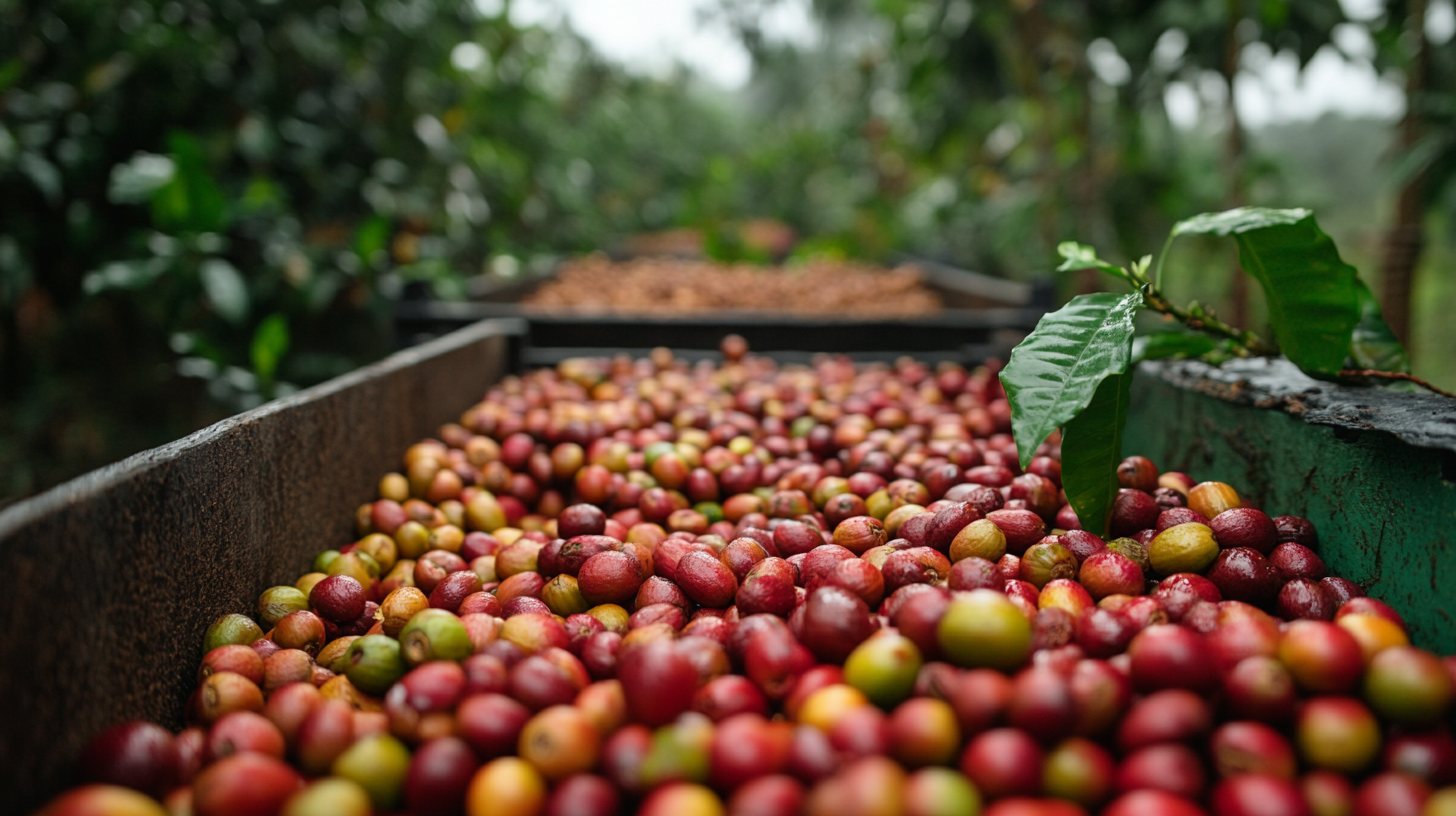Maximize Efficiency and Quality: How Coffee Robot Machines Are Revolutionizing Global Coffee Production
In recent years, the global coffee industry has witnessed significant advancements driven by technology. Among these innovations, the Coffee Robot Machine stands out as a game-changer that promises to enhance both efficiency and quality in coffee production. These machines are designed to streamline the various intricate processes involved in coffee cultivation, from planting and harvesting to brewing. As coffee demand continues to soar, embracing automation through Coffee Robot Machines has become essential to meet the expectations of consumers while maintaining sustainability in farming practices.
The adoption of Coffee Robot Machines not only optimizes labor costs but also ensures a higher standard of quality control throughout the coffee production chain. By integrating precision agriculture techniques and real-time data analytics, these machines can monitor crop health, predict optimal harvest times, and reduce waste. As coffee producers around the world confront challenges such as labor shortages and environmental concerns, the transition to automated solutions is not just beneficial—it's imperative. In this blog, we will explore how Coffee Robot Machines are revolutionizing global coffee production, reshaping the industry landscape, and paving the way for a more efficient and sustainable future in coffee making.

The Rise of Coffee Robot Machines in the Global Market
The rise of coffee robot machines is reshaping the global coffee market, offering significant advancements in efficiency and quality. As consumer demand for coffee continues to grow, the integration of automation in coffee production is becoming increasingly vital. These machines not only enhance the consistency of the brew but also optimize operational workflows, reducing the time and labor required in coffee preparation. Recent market reports highlight a robust growth trajectory for various coffee machine segments. The global coffee machines market, which was valued at approximately USD 7.9 billion in 2022, is projected to exceed USD 11.4 billion by 2032, with a compound annual growth rate of 3.74%. This surge reflects the rising popularity of commercial coffee machines driven by innovative technologies, including automated brewing and precision extraction methods. The efficiency of robotic coffee machines addresses prevalent challenges in meeting high consumer demands in cafés and restaurants, where speed and quality are paramount. Furthermore, the commercial coffee machine sector is set to experience notable expansion, with expectations of reaching USD 9.3 billion by 2032. Factors such as the convenience of coffee vending machines and the growing trend of specialty coffee are propelling this growth. As technology advances, these coffee robot machines are paving the way for a more streamlined and elevated coffee experience, transforming how coffee is produced and enjoyed worldwide.

Enhancing Coffee Quality: The Role of Automation in Processing
As the demand for high-quality coffee continues to grow globally, automation is stepping in as a game changer in the processing sector. The integration of robot machines into coffee production is not just about enhancing efficiency; it's pivotal in ensuring the quality of the final product. Innovations, such as advanced computer vision technologies like YOLO (You Only Look Once) models, are now being employed to detect green coffee beans and classify defects with remarkable accuracy. This precision in processing helps producers maintain high standards, ultimately delivering a richer and more consistent flavor in every cup.
The role of automation in coffee processing extends beyond simple tasks. Robots can operate continuously with minimal downtime, reducing labor costs while boosting output. They excel in repetitive tasks, making them ideal for sorting and grading coffee beans. By employing robots that utilize sophisticated algorithms to assess bean quality, coffee producers can significantly minimize human error and enhance overall product integrity. This advancement not only streamlines the workflow but also elevates the coffee experience for consumers who are increasingly discerning about aroma, taste, and presentation.
The revolution prompted by automation in the coffee industry exemplifies a broader trend seen across the food and beverage sector. As Siân Yates highlights, the rise of machines is transforming operations by enhancing precision and consistency, which are crucial in maintaining high quality standards. The adoption of robotics and AI-driven technologies is setting a new benchmark in coffee production, paving the way for innovations that can redefine how we cultivate, process, and enjoy one of the world's favorite beverages.

Streamlining Production: How Robots Are Boosting Efficiency
The coffee industry is undergoing a significant transformation, driven by the integration of robotic technology aimed at streamlining production processes. According to a report from the International Coffee Organization, the global demand for coffee is expected to reach 175 million 60-kilogram bags by 2025, prompting producers to seek innovative ways to enhance efficiency without compromising quality. The implementation of coffee robot machines directly addresses this challenge, allowing farms to manage production with unprecedented precision and speed.
Robots are now equipped to perform various tasks such as picking, processing, and packaging coffee beans. For instance, automated harvester technology can significantly reduce labor costs while increasing the accuracy of bean selection. A study by the American Society of Agricultural and Biological Engineers indicates that robotic harvesters can improve coffee picking efficiency by over 50%, which is crucial in an industry where labor shortages are a perennial challenge. These machines not only expedite the harvesting process but also help ensure that beans are collected at their prime, thus maintaining the flavor profile demanded by consumers.
Furthermore, robotic systems enhance quality control throughout the production chain. Advanced imaging and sorting technologies can assess the quality of coffee beans more effectively than human workers. Research from the Specialty Coffee Association shows that automation in quality assessment can reduce defects by up to 40%, ensuring that only the best beans make it to the final product. This technological shift not only meets the growing consumer expectations but also helps producers maximize their yield, resulting in higher profit margins and a more sustainable business model.

Sustainability in Coffee Farming: The Environmental Impact of Robotics
The rise of coffee robot machines marks a significant shift in the global coffee production landscape, particularly in terms of sustainability. Traditional coffee farming often involves extensive manual labor, which can lead to detrimental environmental impacts due to soil depletion, deforestation, and chemical pesticide use. However, with the introduction of robotics, coffee production is becoming more efficient while minimizing these negative effects.
The innovative technology behind coffee robots allows for precision in tasks such as planting, watering, and harvesting. These machines can operate with a minimal ecological footprint, using less water and reducing the need for harmful chemicals. This shift not only conserves natural resources but also supports the health of the ecosystems in which coffee is grown. By automating labor-intensive processes, farmers can focus on organic practices that enhance soil health and biodiversity.
Moreover, robotics can facilitate better data collection and analysis regarding climate conditions and soil health. This information can be invaluable for implementing sustainable farming practices, allowing farmers to adapt to environmental challenges such as climate change. As more growers adopt these technologies, the coffee industry can look forward to a future where quality and sustainability go hand in hand, ensuring not just the survival of coffee farming but its thriving presence in an environmentally-conscious world.
Future Trends: The Next Innovations in Coffee Robotics Production
As the coffee industry continues to evolve, the integration of robotics is paving the way for the next wave of innovation in coffee production. Coffee robots, equipped with advanced technology, are not just enhancing efficiency but are also refocusing on quality control. The future of coffee robotics involves not only automating traditional processes but also incorporating artificial intelligence to optimize growing conditions, harvest timing, and flavor profiling.
One of the most promising advancements in coffee robotics is the development of precision agriculture techniques. Through the use of drones and autonomous machines, coffee growers can monitor soil health, moisture levels, and pest activity in real time. This data-driven approach allows for targeted interventions, ensuring that each coffee plant receives the care it needs for optimal growth and yield. Additionally, as these robots become more sophisticated, the ability to analyze and collect data will refine the selection processes for beans, enhancing the taste profile of the final product.
Looking ahead, we can expect the emergence of fully automated roasting and brewing systems that guarantee consistency and quality at unprecedented scales. These innovative machines will leverage machine learning algorithms to adapt to the unique characteristics of different coffee bean varieties, producing a cup of coffee tailored to consumer preferences. As coffee robotics continue to advance, the industry will not only meet the growing demand for high-quality coffee but also pave the way for sustainable production practices that could redefine the global coffee landscape.
